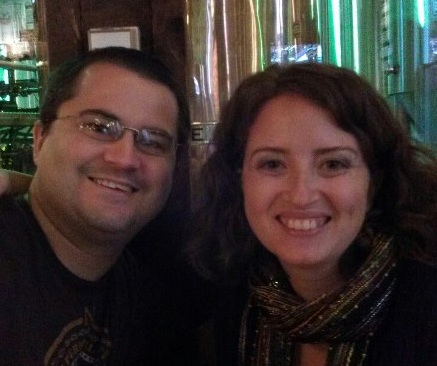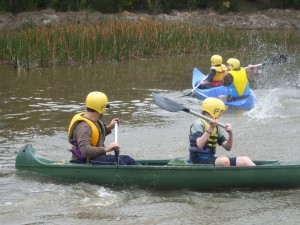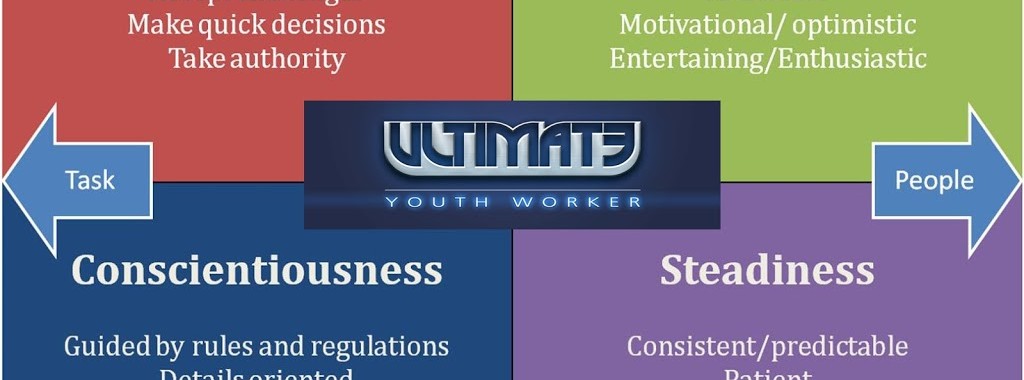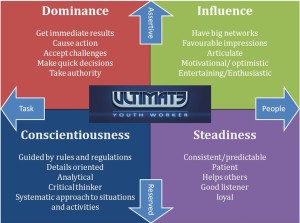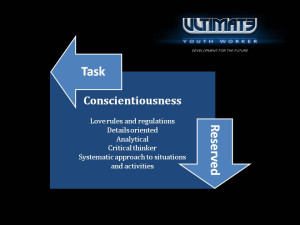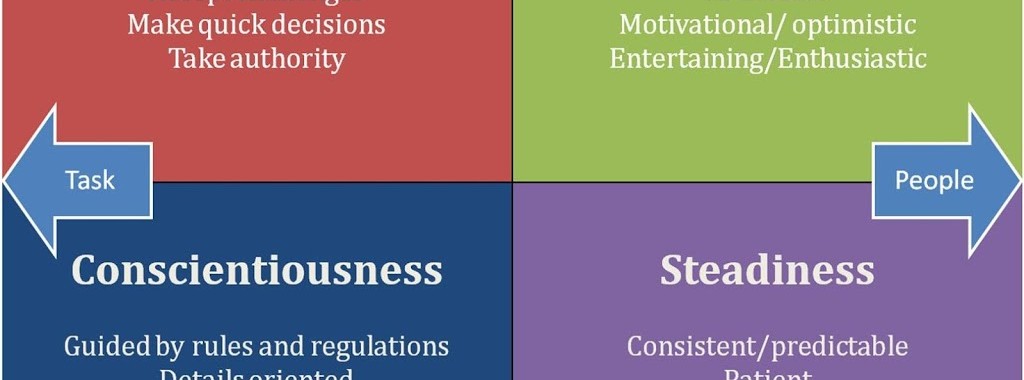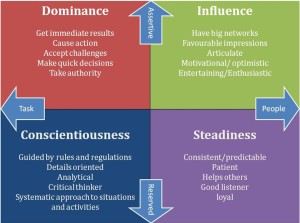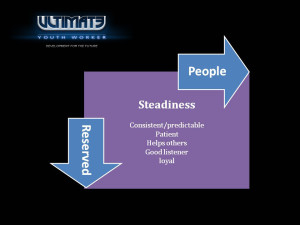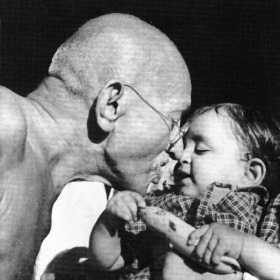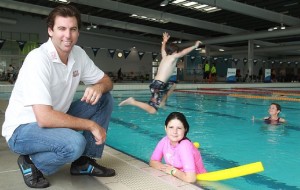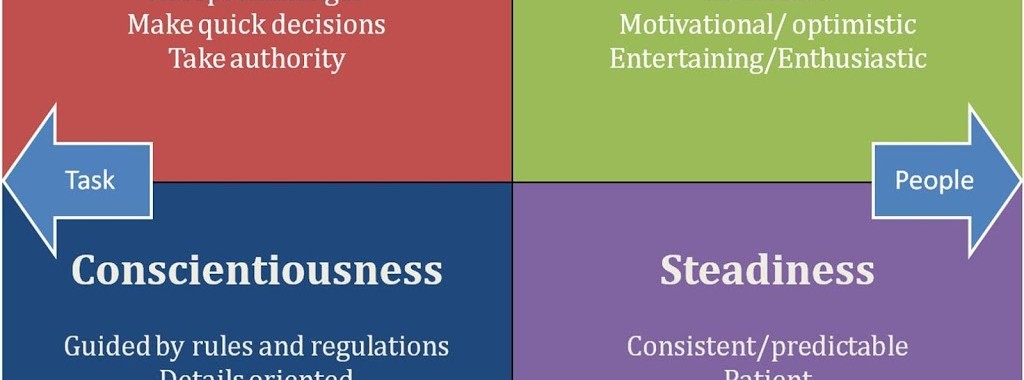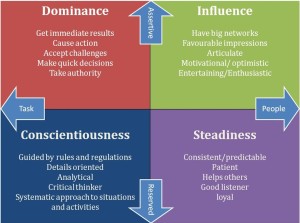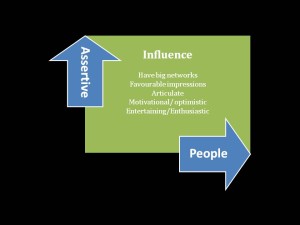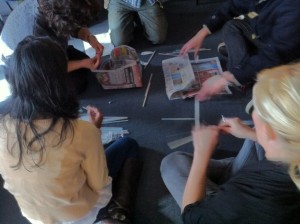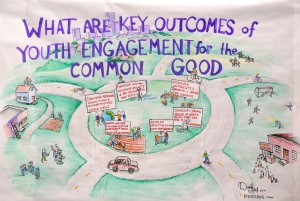Today it is my pleasure to kick off a series that will take us to mid January 2013. In this series we will hear from some of the leading minds in youth work from throughout the world as they answer the question, “What will youth work look like in 2013???”
Today’s Guest Post is written by one of our favourite your work blogging duo’s, Shae and Stephen Pepper. In their short time on the scene they have rocketed to the front page of Google with their amazing blog posts on everything from ‘games for youth groups’ to ‘how to run a retreat’ (check out their amazing book). They have also been our biggest supporters in the blogosphere by promoting us in their weekly top blog posts of the week.
So guys, what will youth work look like in 2013???
When Aaron asked us to write about what we thought youth work would look like in 2013, my first thought was “probably not all that different to 2012!” As with any profession, change can be very slow as people are more comfortable with the status quo, rather than exploring new ideas that may not succeed.
Having said that, there are three areas that we think youth work will need to start focusing on from 2013 onwards:
University
Over the last 25 years, the cost of university education in the US has more than tripled, which has resulted in 1 in 11 people defaulting on their student loan repayments within two years of making payments.
Something has to give.
It’s unlikely that universities are going to willingly lower the cost of gaining a degree, which will mean that people will seek alternatives instead. The good thing for them is that alternatives are starting to take shape.
The Minerva Project is seeking to be a virtual Harvard, while charging tuition fees that are less than half the price of regular universities. Udacity is offering higher education for free. Khan Academy has delivered more than 200 million free lessons online. Codecademyis teaching people how to code for free.
All these initiatives are going to have two major results. One – fewer US students will go to university in its traditional format. Two – learning at the higher education level will become more freely available for everyone; not just in the US, but all over the world.
What does this mean for youth work?
Fewer university students means fewer young people in university towns. This will have an impact on youth work provision in those towns, potentially reducing the funding received from the local government for youth programs.
More young people will also continue living at home from the age of 18 instead of moving away to live at university. This will therefore change the demographics of non-university towns as well, as there will be more 18-21 year olds.
Youth workers – particularly youth pastors – will need to take this into account. Churches often lose young people once they turn 18 because they move away to university. If that’s not happening, it’s vital that they do more to incorporate these 18-21 year olds as part of their church community.
Unemployment
What does this mean for youth work?
Youth workers need to start doing more to help young people gain the skills they need to find employment. We’ve offered a few ideas for youth unemployment solutions, but the solutions will need to be tailored based on your local area.
Unemployed young people in Detroit may have grown up expecting to work on a production line building cars, but many of those opportunities have disappeared. Youth living in rural areas have different job opportunities to those in large cities. Youth in countries like Spain and Greece face even more challenging circumstances, seeing as they’re competing against so many other young people for jobs.
There’s sadly no magic solution to fix this problem – if there was, governments all over the world would have implemented it by now. Local youth workers are well placed though to offer programs that can help unemployed young people – check out Plantation Cafe Trading in Guildford, England for one initiative that helps youth gain landscape gardening skills that makes them more employable.
One positive thing is that it’s so much cheaper and easier for young people to set up their own businesses. They no longer need thousands of dollars to set up a business, as they can start their own website for less than $100 or use platforms like eBay or Etsy to earn an income.
This is especially helpful for students who are less academically capable, as they’re often the ones who are more gifted creatively. The low barrier to entry for new businesses is also enhanced by how easy it now is to reach a global audience.
Holistic youth work
Many youth work programs have a tendency to focus on one aspect of a young person’s life – physical OR emotional OR spiritual. Here in the US, the majority of youth work programming is done by and through churches, meaning that the emphasis tends to be on the spiritual.
The reason why youth workers need to pay much more attention to all three of these areas is that each one impacts the other:
What does this mean for youth work?
Youth workers don’t have to be an expert in all three of these areas. A sports coach doesn’t also have to be a child psychiatrist and youth pastor. A kids church helper doesn’t also have to be a nutritionist and counselor.
All youth workers do need to have an awareness of the interconnectedness of the physical, emotional and spiritual lives of youth though. Churches in low income areas could offer free meals at their youth programs. Community youth clubs could offer sex education classes. School counselors could try and get a depressed young person connected with a faith-based youth group (or even another social club) within a school, so that they have support from other young people of their age.
Youth workers should also be willing to partner with other organizations to ensure that all of these needs are met. There are many benefits to having partnerships in youth work, one of which is that far more can be achieved when skills and resources are combined than if you tried to address the needs all by yourself.
University. Unemployment. Holistic youth work. These are the three areas that we feel youth workers need to start focusing on more.
How about you? We’d love to hear your thoughts in the comments below.
This post was written by Stephen & Shae Pepper of Youth Workin’ It. They blog about youth work 6 days a week and also offer consultancy, services and youth work resources for youth workers and organizations worldwide.
